GrowNYC is shrinking and needs your help
Both local and federal budget cuts have come for one of the city's most reliable, affordable grocery options
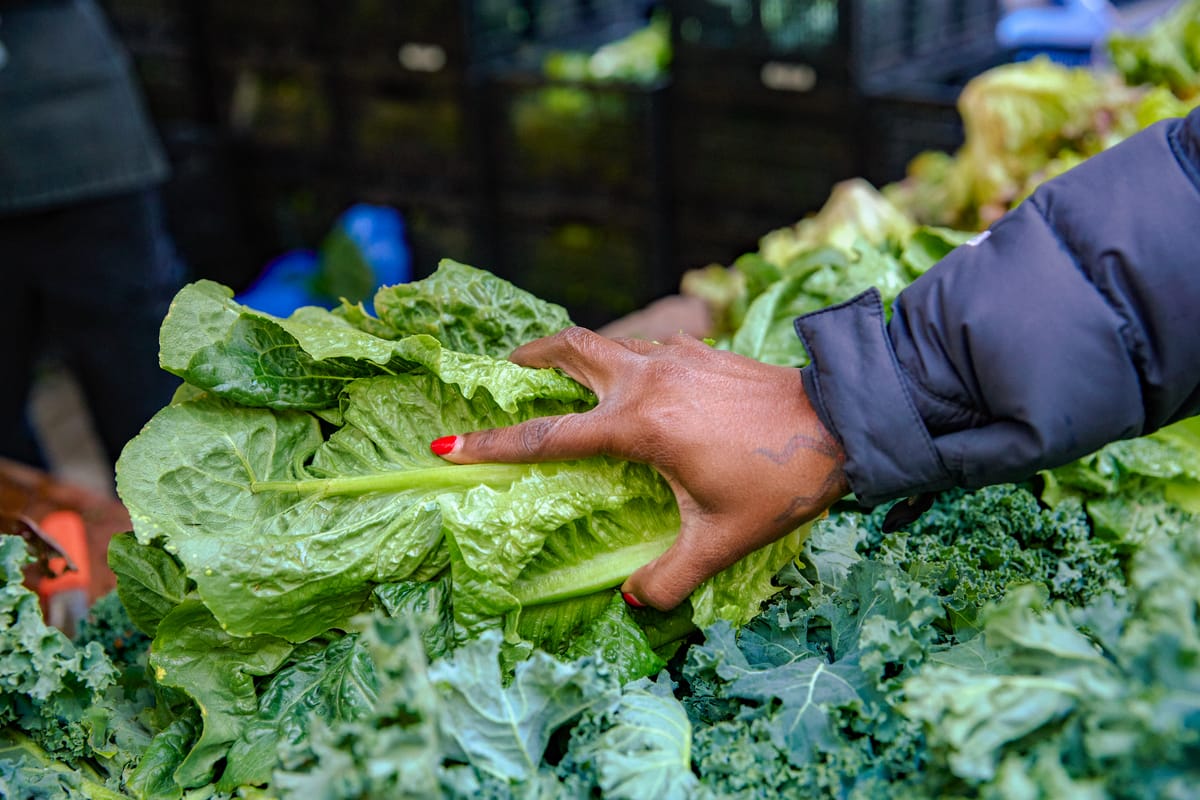
While the Cuomo and Sliwa ghouls of the world wail and gnash their teeth at the idea of a pilot program for city-run grocery stores, that conversation conveniently glosses over the fact that subsidized grocery programs already exist in the city, and help feed New Yorkers every day.
To name one: the nonprofit GrowNYC, which has offered high-quality local produce and pantry items across the five boroughs for decades, most famously at their flagship Union Square Greenmarket. (The broader organization was founded in 1970 in “the spirit of Earth Day.”) In lieu of a brick-and-mortar store location, the org runs weekly markets in neighborhoods all over the city connecting New Yorkers with local farmers and making produce available at generally sane prices. (To add a personal PSA as a longtime Bed-Stuy customer, they’ve held on as one of the best deals in town these days for local, ethically raised eggs, at $7 a dozen.)
Like every other worthwhile program in the U.S. right now, they’re in trouble. GrowNYC’s funding was first slashed during in the Adams administration’s brutal 2023 budget cuts, and now in the ongoing bloodletting of federal funding under the Trump administration. Some crucial programs have already been eliminated, while others are on the chopping block.
“Our experiences since the pandemic are not unique,” GrowNYC director of advancement Nick Rolf told The Groove. “We’ve been facing a lot of headwinds in a lot of different areas, including individual giving, which is down across the board for nonprofits.”
Put this in your cart: Community backed, worker-owned local journalism that's helpful and fun. Become a member to support us today and you'll get access to great perks too.
Funding cuts brought GrowNYC’s longtime community composting program to an end in 2024 in favor of the citywide program that, while a step in the right direction, is struggling with overall adoption and is less environmentally friendly than the now-dead community version. The farmstands are also now suffering from the SNAP funding cuts handed down as part of Trump’s god-awful megabill, as well as the administration’s abrupt cancellation of the USDA-funded New York Food for New York Families program.
“When the SNAP cuts go into effect, that’s going to really affect the farmers at our greenmarkets as well,” Rolf said. “All the farmers accept those benefits, and many rely on those customers. We're really concerned about the ripple effects that’s going to have.”
The program has been forced to cut back year-round service at its Farmstand sites in Bed-Stuy, Crown Heights, Lenox Hill, Norwood and Uptown Grand Central. Additionally, at the end of this month, GrowNYC’s free food distribution at 22 sites across the city will be forced to cease operations as well.
“It’s important to talk about it in the context of federal funding cuts,” Rolf said. The now-rescinded grant sourced from USDA funding had been designed to get local produce “into the communities that need it most,” Rolf said. “We’ve been able to distribute over a million pounds of free food to New Yorkers. But we’ve had to tell our community partners that last distributions are taking place in August.”
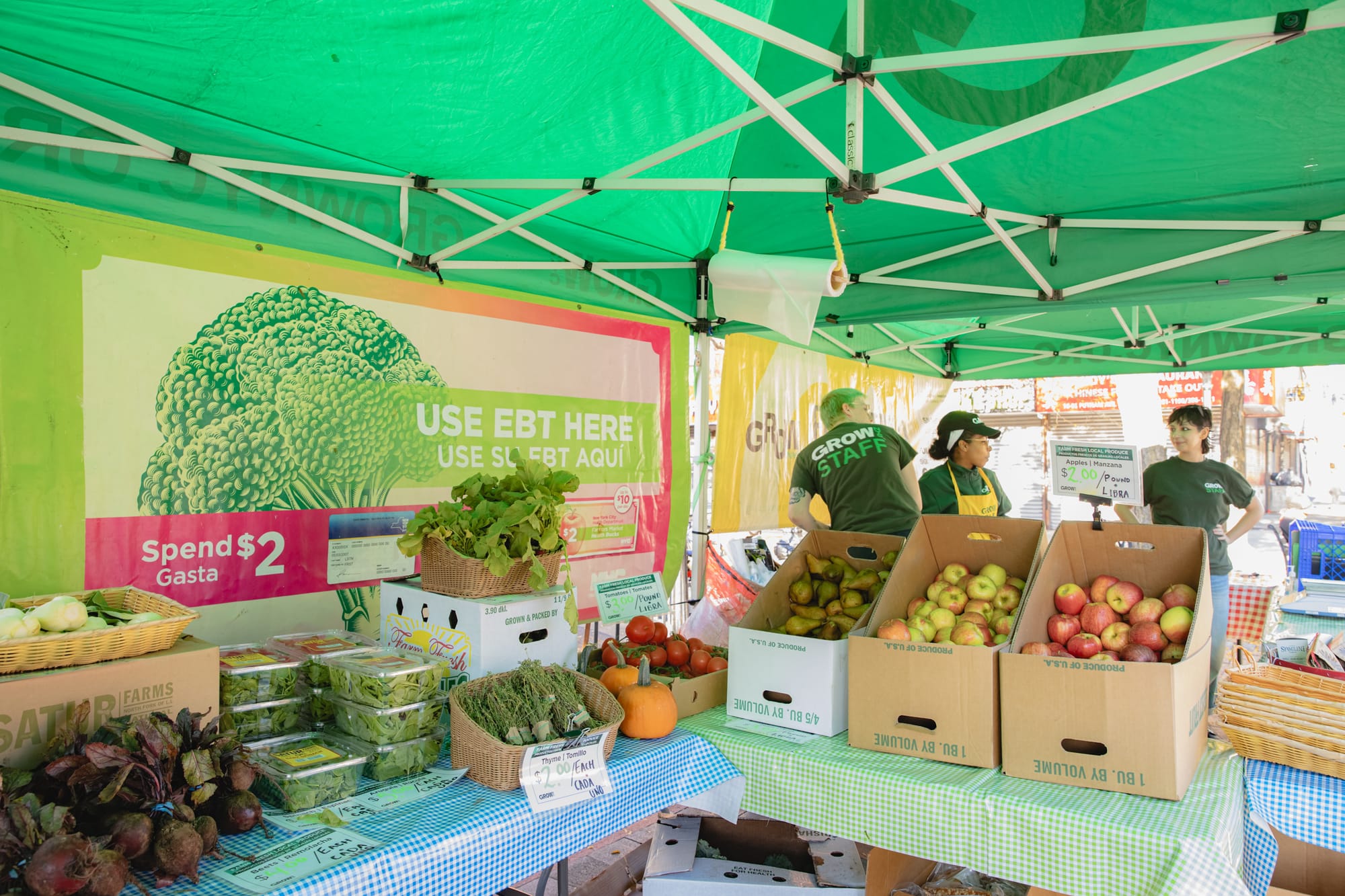
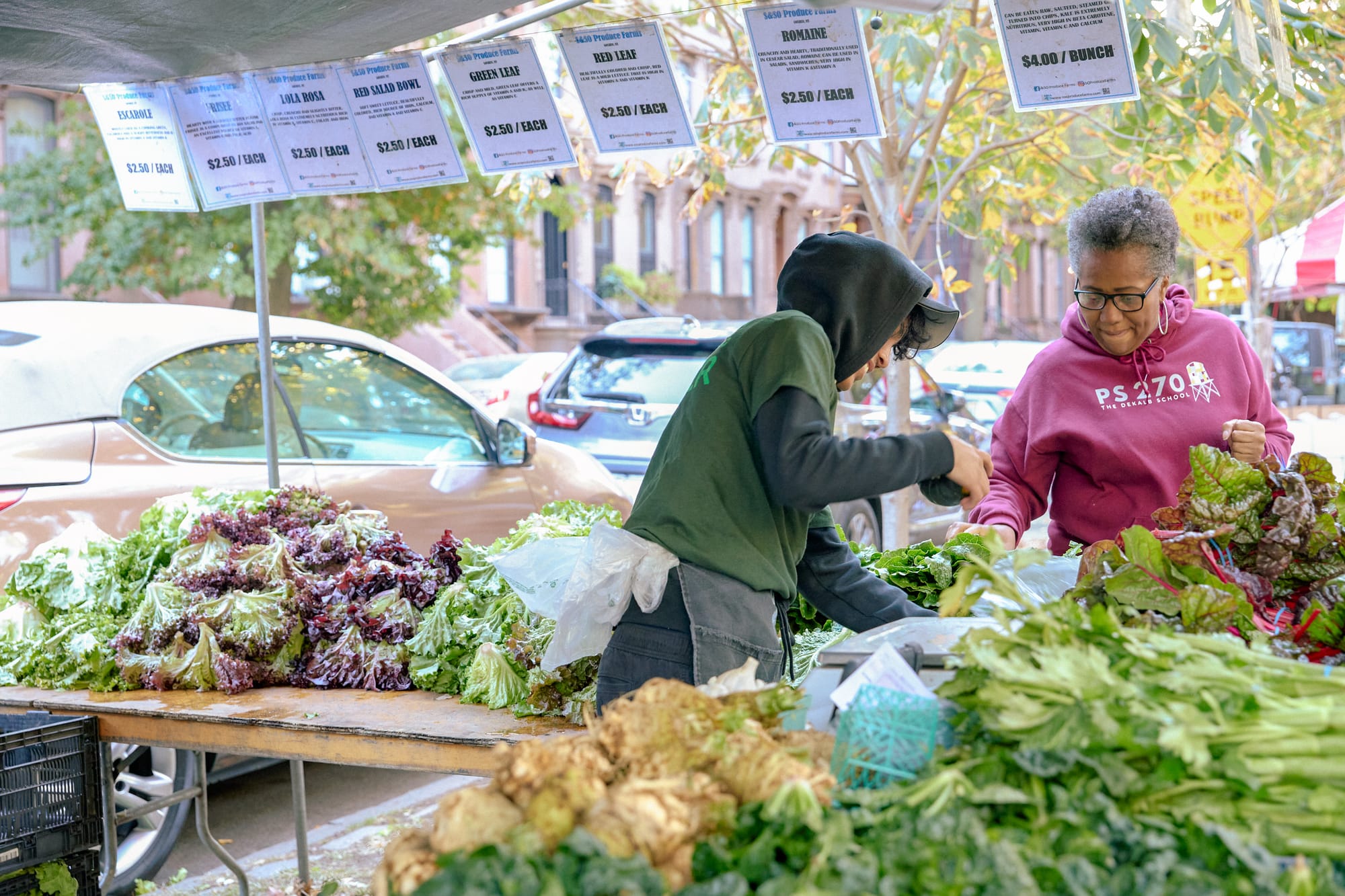
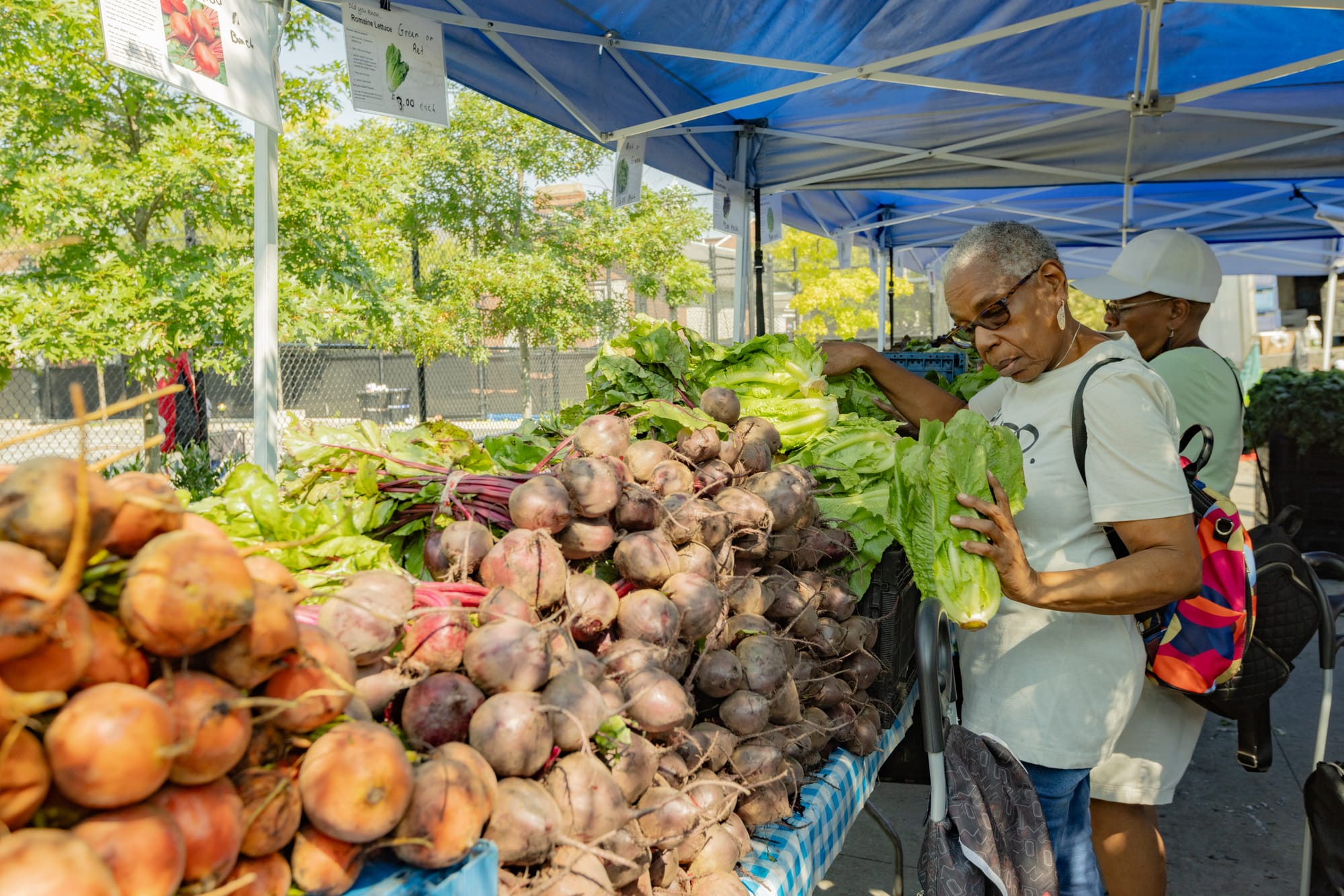
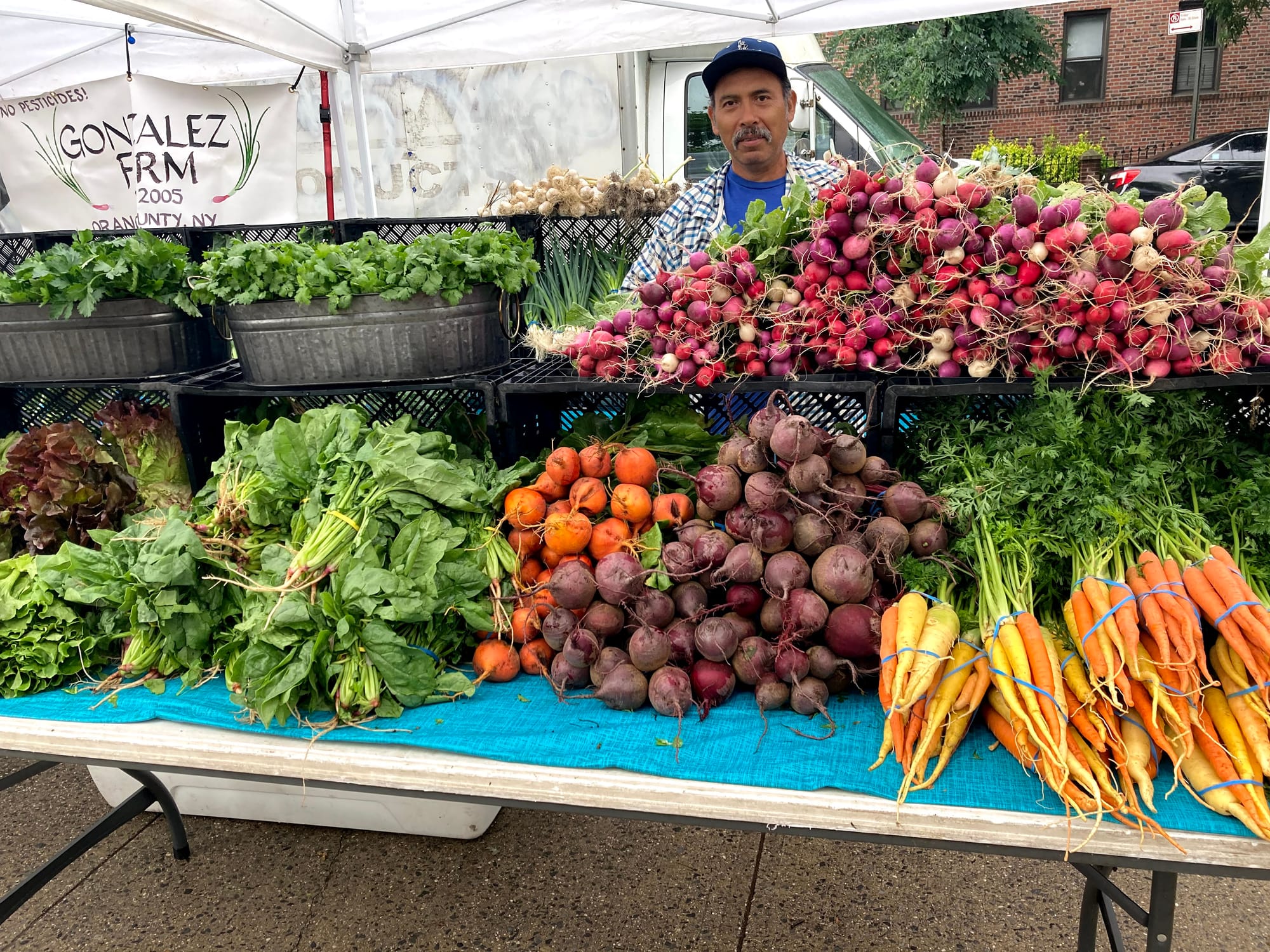
“Frankly, it’s a lot of what people need right now if you’re at all concerned and feeling powerless about what’s happening," said Nick Rolf, the organization's Director of Advancement. (Photos courtesy of GrowNYC)
In an effort to become less reliant on fickle city, state or federal funding, the organization launched an “emergency fund” earlier this summer, and is courting both private donors as well as foundations. (The organization partnered with local politicians for a press conference sounding the alarm last week.)
But they’re also asking New Yorkers to get involved, in what could also be a much-needed bit of “get off the internet” community action.
“We have great volunteer programs that get people out into our communities, farmstands, helping build gardens,” Rolf said. “Having some sweaty equity in helping New York City be a more sustainable place to live.”
For New Yorkers who are both horrified at our current political climate and excited for the prospect of progressive policies that make food more accessible, it’s also an opportunity to take action on those ideals right now.
“Frankly, it’s a lot of what people need right now if you’re at all concerned and feeling powerless about what’s happening [in the broader political landscape], this is an opportunity to take some initiative,” said Rolf.





Comments ()